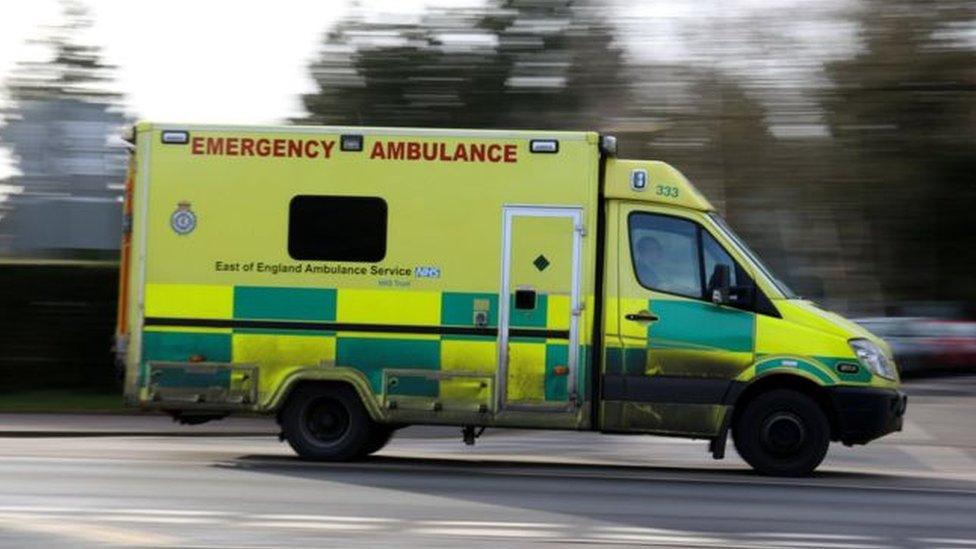East of England Ambulance Trust failed man dying of sepsis
- Published
A man died from sepsis four days after he waited nearly six hours for an ambulance.
A coroner criticised East of England Ambulance Trust for "systemic failures" in Christopher Williams' care.
The 77-year-old, from Barnham Broom, Norfolk, deteriorated rapidly as he waited and when he was kept in an ambulance for another three hours despite having a bed waiting for him.
The trust has apologised and has made changes to improve the service.
In total, Mr Williams waited nine hours between the first ambulance call and admission to Norfolk and Norwich University Hospital (NNUH) on 22 January.
Triage failures by a call handler, communication failures about the waiting bed and the worsening medical condition, plus the excessive waiting time, were all cited as failures of the trust by Yvonne Blake, the area coroner for Norfolk.
Excruciating pain
In a report to prevent future deaths, she said: "This failure in communication is one which I feel places other patients at risk of death and is unacceptable.
"This is not an isolated incident and it appears that there are systemic failures within your organisation which should be addressed."
The trust's business continuity manager told the inquest in May that he was unaware of the call handler's error until the coroner told him.
Three days after a routine operation to remove a screw in his foot Mr Williams had excruciating pain and tingling in his legs prompting his GP to call for an ambulance.
After three days in the hospital's high dependency unit Mr Williams died on 26 January.
The coroner also identified gaps in the trust's assessment questions for patients suffering neurological symptoms.
A spokeswoman for the ambulance trust said: "We would like to extend our condolences to Mr Williams' family, and apologise for the failures identified by the coroner which contributed to delays in Mr Williams' admission to hospital."
The trust said it had made a number of changes including recommending improved triage software used by handlers and developing better screening specifically for sepsis and neurological deficiencies.
- Published31 July 2019
